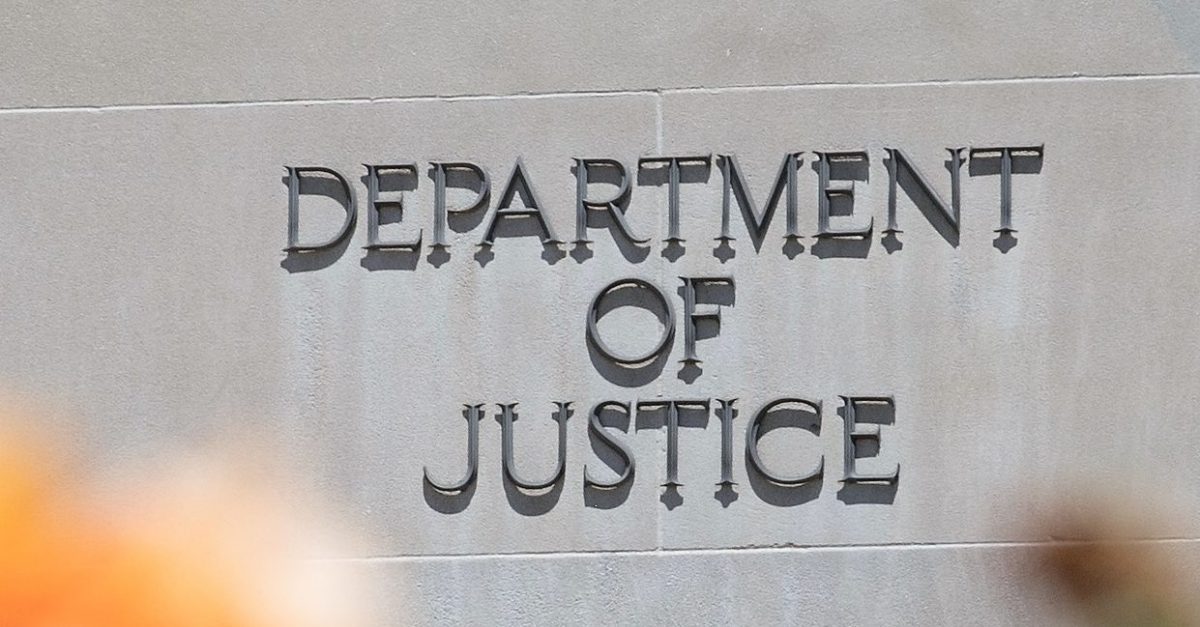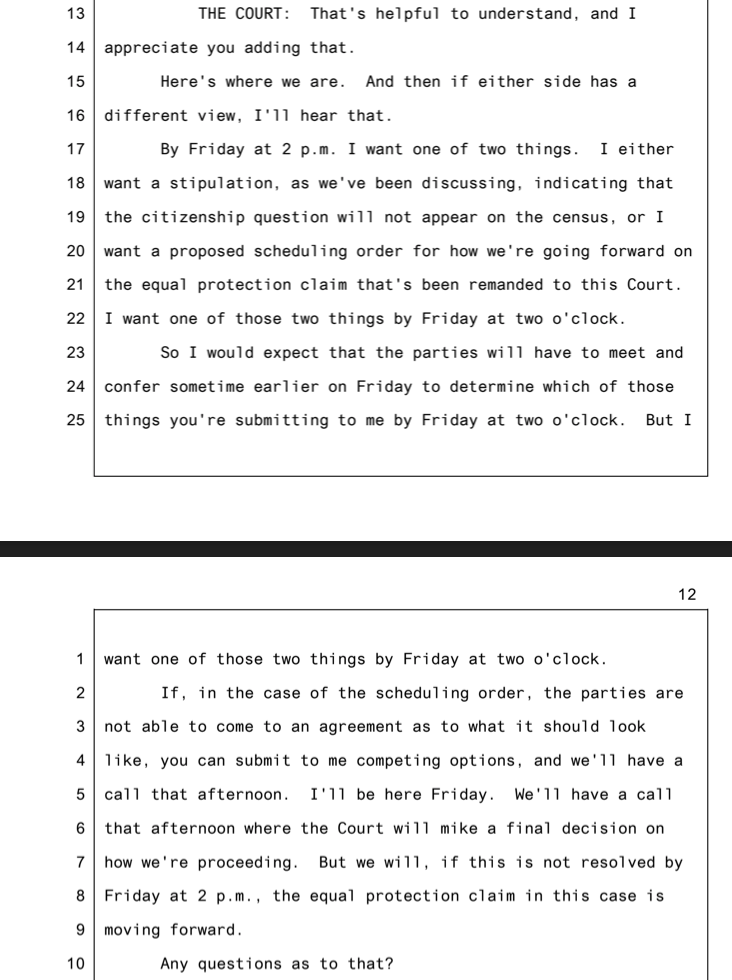
Trump Adminstration lawyers and the Department Commerce, President Donald Trump tweeted on the Fourth of July, were “working very hard” on coming up with a rationale would ensure a citizenship question would be added to the 2020 Census. Although it looked like the administration was going to concede on the issue Tuesday, a Trump tweet from Wednesday said quite the opposite.
That tweet sparked an emergency conference call involving DOJ lawyers, plaintiffs’ attorneys and U.S. District Judge George Hazel on Wednesday afternoon. Hazel said that he saw the president’s tweet and felt the need to schedule this call because it “directly contradicted the position” DOJ attorney Joshua Gardner shared with him the day before, namely that a decision had been made to print the census questionnaire without a citizenship question.
At one point during the call, Gardner asked the judge if this matter could wait until Monday, given the holiday/vacation, and the judge said “no,” because of the time crunch. Assistant Attorney General (AAG) for the Civil Division Jody Hunt confirmed on the call that the DOJ was asked to “examine whether there is a path forward, consistent with the Supreme Court’s decision that would allow us to include the citizenship question on the census.”
“We think there may be a legally available path under the Supreme Court’s decision,” Hunt said. “We’re examining that, looking at near-term options to see whether that’s viable and possible.”
Thus, Judge Hazel asked the DOJ for “one of two things” by 2 p.m. today.

Judge Hazel asked that the DOJ provide either a stipulation “indicating that the citizenship question will not appear on the census” or a “proposed scheduling order for how we’re going forward on the equal protection claim that’s been remanded to this court.”
Challengers of the census question filed documents on June 14 in Hazel’s court, claiming that new documents from the estate of recently deceased Republican operative Thomas Hofeller showed that Hofeller specifically orchestrated the addition of the citizenship census question to achieve certain advantages. Hofeller notoriously specialized in gerrymandering maps to ensure Republican advantages.
“These newly discovered documents…eliminate any colorable doubt about the link between Hofeller and government employees involved in the citizenship question approval process,” the plaintiffs argued.
While the DOJ has dismissed this evidence as a part of an eleventh-hour conspiracy theory, Hazel agreed that the Hofeller evidence “potentially connects the dots between a discriminatory purpose–diluting Hispanics’ political power–and Secretary [Wilbur] Ross’s decision.”
Hazel blocked the citizenship question in April, saying the question was “arbitrary and capricious”:
For the following reasons, the Court concludes: Plaintiffs have standing to assert their claims; the decision to add a citizenship question to the 2020 Census was arbitrary and capricious in violation of the APA; the Defendants’ actions violate the Constitution by unreasonably compromising the distributive accuracy of the Census contrary to the Enumeration Clause’s mandate; and Plaintiffs did not meet their burden to prove Defendants’ actions violate the Due Process Clause or amount to a conspiracy to violate civil rights because Plaintiffs failed to show that the addition of the citizenship question was motivated by invidious racial discrimination.
Note that, at the time, Hazel said the plaintiffs did not prove the question was “motivated by invidious racial discrimination.” This was before the Hofeller evidence was brought to his or anyone’s attention.
Hazel was appointed by former President Barack Obama; he was sworn in on May 2, 2014.
[Image via Alex Wroblewski/Getty Images]
Have a tip we should know? [email protected]